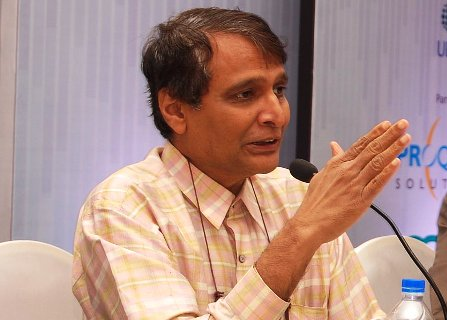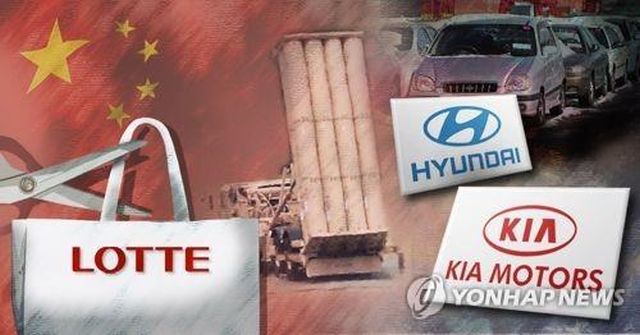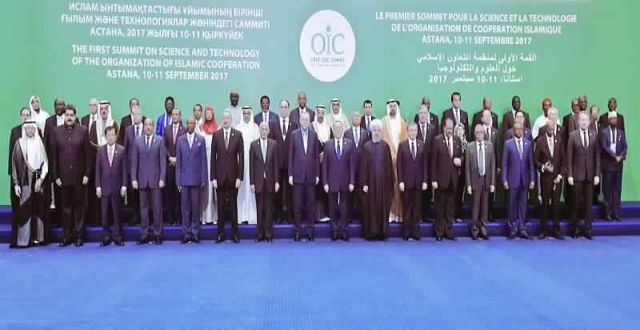
by admin | May 25, 2021 | Business, Corporate, Corporate Buzz, Investing, Large Enterprise
 Halol (Gujarat) : Britain-based automotive marque MG Motor on Friday announced the inauguration of its first-ever manufacturing facility in India, through a minimum initial investment of Rs 2,000 crore.
Halol (Gujarat) : Britain-based automotive marque MG Motor on Friday announced the inauguration of its first-ever manufacturing facility in India, through a minimum initial investment of Rs 2,000 crore.
With an initial capacity of 80,000 units per annum in the first phase, MG Motor India will roll-out its first product from the plant in 2019, the company said in a statement.
The MG brand originated as an iconic British racing sports brand in the year 1924.
“The state-of-the-art facility, spread over an area of 170 acres, will be revamped by MG Motor by 2019. The company has already hired an initial workforce of 70 employees at the plant,” it said.
The facility will entail creation of significant number of jobs, apart from several additional indirect jobs in the state, as part of the ‘Make in India’ and ‘Skill India’ initiatives, MG Motor stated.
“Today is a watershed moment for the MG brand in India with the inauguration of our first ever manufacturing facility here. Overall, we aim to positively contribute to the ecosystem here in Gujarat including all stakeholders by generating employment opportunities for local talent, leveraging the capable supplier base,” said Rajeev Chaba, President and Managing Director, MG Motor India.
“The Morris Garages brand already has a huge resonance in India with at least 500 owners in India. These owners and many passionate fans have expressed their curiosity, keenly anticipating the brand’s return to India. The first product will roll out from here in 2019, blending MG’s true DNA with modern British design language,” he added.
The greenfield facility was inaugurated with a traditional Indian ‘Puja’ ceremony during the auspicious occasion of Navratras, in the presence of all MG Motor India employees, MG Motor International employees and key representatives of the local administration including the Gujarat Government.
“We greatly appreciate the proactive approach displayed by the Gujarat government in facilitating the smooth transfer approval of the Halol plant and granting us the required approvals to re-start the operations. With the takeover and other transfer formalities having completed, we will start refurbishing the entire plant very soon, with MG’s state-of-the-art manufacturing tools, equipment and processes,” said P. Balendran, Executive Director, MG Motor India.
—IANS

by admin | May 25, 2021 | Business, Corporate, Corporate Governance, Economy, Investing, Large Enterprise, News, Politics

Suresh Prabhu
New Delhi : Welcoming Commerce Minister Suresh Prabhu’s move to convene a meeting with industry associations to discuss issues affecting industrial growth, India Inc on Tuesday said the key lies in boosting investors confidence.
“We submitted to the Minister that the key to arresting the long-term decline in investment rate from over 35 per cent to below 30 per cent lies in boosting investors’ confidence in the country’s medium-term growth prospects and overall environment for doing business,” the Federation of Indian Chambers of Commerce and Industry (Ficci) said in a statement.
“The immediate solutions include a reduction in the interest rate, passing this reduction to consumers and investors, and a sharp depreciation of rupee,” it said.
The industry body expressed concern that the recent increase in consumption demand is being increasingly met through imports rather than higher capacity utilisation.
“Ficci welcomes the Minister’s announcement that a Regulatory Review Committee will be set up to examine how regulatory institutions may be coming in the way of increased investment. We also welcome the Commerce Ministry’s decision to set up an India-China Working Group to address the problem of the huge bilateral trade deficit,” it said.
The industry body also welcomed the Ministry’s decision to create an Investment War Room to monitor investment in the country.
It urged the government to build a stronger partnership with the private sector so that the latter once again becomes a driver of growth and a generator of employment in the country.
Another industry body, Confederation of Indian Industry (CII), said that at this juncture, an extra nudge is desirable to boost both growth and growth sentiments.
“The four main areas that need attention are investments; exports; Micro, Small and Medium Enterprises (MSMEs); and employment,” CII said.
Its suggestions included reduction of interest rates by 100 basis points over the next year to spur consumption, relaxation of fiscal consolidation targets for a year or two, discouraging state governments from curtailing capital investments, lowering corporate tax to 18 per cent, simple framework for claiming input tax credit and expansion of coverage of Goods and Services Tax (GST) to include electricity, oil and gas, alcohol, and real estate.
For exports, it suggested allowing commercial banks to lend more to Small and Medium Enterprises (SMEs) exporters and expand interest rate subvention from 3 per cent to 4 per cent.
“There is a need to reduce pressure on working capital of MSME for various reasons such as GST and contract terms. Increase the time, especially for SMEs, for payment of taxes and duties under the GST. Create capital insurance scheme to protect MSME against delayed payments. Encourage alternate sources of lending, especially to MSMEs, like securitisation of exporters’ receivables,” the CII said.
It also suggested to reinstate fixed-term employment for all manufacturing sectors, the statement said.
—IANS

by admin | May 25, 2021 | Business, Investing, Large Enterprise, Property, Venture Capital
 Mumbai : Securities and Exchange Board of India (Sebi) on Monday said it has allowed Infrastructure Investment Trusts (InvITs) and Real Estate Investment Trusts (REITs) to raise funds by issuing debt securities.
Mumbai : Securities and Exchange Board of India (Sebi) on Monday said it has allowed Infrastructure Investment Trusts (InvITs) and Real Estate Investment Trusts (REITs) to raise funds by issuing debt securities.
“In order to facilitate growth of InvITs and REITs, Sebi Board has approved allowing them to raise debt capital by issuing debt securities. It has also introduced the concept of strategic investor for REITs on similar lines of InvITs and allowed single asset REIT on similar lines of InvIT,” the markets regulator said in a statement.
It has allowed REITs to lend to underlying holding company or special purpose vehicle (SPV), the statement said.
The Sebi Board also decided to have more consultations with stakeholders on a proposal to allow REITs to invest at least 50 per cent of the equity share capital or interest in the underlying holding company or SPVs, and similarly allowing the holding company to invest at least 50 per cent of the equity share capital or interest in the underlying SPVs, it added.
—IANS

by admin | May 25, 2021 | Investing, World
 Seoul, S.Korea : South Korean companies’ investment in China declined 43.7 per cent in the first seven months of this year amid a prolonged diplomatic dispute over the deployment of a US missile defence system, central bank data showed Sunday, South Korea’s Yonhap news agency reported.
Seoul, S.Korea : South Korean companies’ investment in China declined 43.7 per cent in the first seven months of this year amid a prolonged diplomatic dispute over the deployment of a US missile defence system, central bank data showed Sunday, South Korea’s Yonhap news agency reported.
Their direct investment totalled US$1.75 billion in the January-July period, down from $3.11 billion in the same period last year.
The sharp drop compares to moderate 1.2 per cent and 3.7 per cent declines in investments by the European Union (EU) and Japan, respectively, according to the data from the Bank of Korea (BOK).
Recently, South Korea’s retail giant Lotte decided to sell its discount store chain in China as Beijing stepped up economic retaliation against Seoul over the deployment of the US Terminal High Altitude Area Defense (THAAD) battery on its soil.
Despite repeated assurances from Seoul and Washington that the THAAD system is designed only to defend against North Korea, China has long voiced opposition to the deployment of THAAD in South Korea, arguing that it hurts its security interests.
— NNN-BERNAMA

by admin | May 25, 2021 | Business Summit, Events, Investing, Markets, Muslim World, Technology
 Astana : Heads of state and government of the Organization of Islamic Cooperation (OIC) stressed the need to increase investment in science, technology and innovation, pointing out that the transfer of science and technology is one of the main ways to accelerate the economic development of developing countries.
Astana : Heads of state and government of the Organization of Islamic Cooperation (OIC) stressed the need to increase investment in science, technology and innovation, pointing out that the transfer of science and technology is one of the main ways to accelerate the economic development of developing countries.
In their final communique issued Monday at the conclusion of the First Islamic Science and Technology Summit hosted by the OIC in the Kazakh capital of Astana on September 10-11, leaders of the OIC member states emphasized their determination to eradicate extreme poverty from their societies, including intellectual poverty.
They reaffirmed their commitment to the principles and objectives enshrined in the OIC Charter, particularly advancing the acquisition and popularization of knowledge in consonance with the lofty ideals of Islam to achieve intellectual excellence; and enhancing and developing science and technology and encouraging research and cooperation among the member states in these fields.
The leaders expressed their resolve to reach the goals of OIC Science and Technology Agenda 2026 through a focused series of initiatives and programs in education, skills development, basic and applied sciences and big science which will be implemented through multinational and multi-institutional stakeholders in the member states.
Also in their communique, they encourage the member states to make universities and other institutions of higher education, particularly scientific research institutions, as centers of excellence so that they can play an effective role in developing within the society a culture of inquiry, intellectual pursuit and merit.
The leaders agreed among themselves to individually and collectively pursue cooperation among their countries for the sustainable development of their peoples and to confront the societal challenges of the 21st Century.
They further reaffirmed their commitment to increase the allocation of funding for the development of education, science, health and water to achieve the goals set forth in OIC 2025 Plan of Action and the United Nations Sustainable Development Goals (SDGs 2030).
They urged the member states to develop a joint policy framework to facilitate movement and employment of professionals, mutual recognition of diplomas, the inflow of new technologies and projects. In this regard, the leaders welcomed the initiative of Kazakhstan’s President, entitled “The Islamic Infrastructure Integration”, aimed at ensuring the integration of infrastructure in the field of transport, energy, trade and investment.
The communique called on the OIC member states to actively promote and support collaborative research programs in the field of agriculture, food security, conservation of eco-systems, including the fight against drought, desertification, effective management of water resources and others. It also called for reviewing the security of digital content by examining and harmonizing existing laws, policies and response related to cyber-security in the member states, keeping in mind its profound implications for all affairs of state and the emergence of meta-data.
The leaders expressed appreciation for the launching of the Science, Technology and Innovation Fund by the Islamic Development Bank (IDB) Group. which will significantly contribute to implementing the OIC Agenda 2026 on science, technology and innovation as well as addressing the development needs of the OIC countries. Therefore, they called upon the member states to contribute to the Fund.
In the communique, the leaders welcomed the offer of the government of Uzbekistan to host the 2nd OIC Summit on Science and Technology. They mandated the OIC General Secretariat and the Standing Committee on Scientific and Technological Cooperation (COMSTECH) to work with the Uzbek government to make necessary preparations for the convening of the next OIC Summit on Science and Technology in Uzbekistan.
—AB/IINA

 Halol (Gujarat) : Britain-based automotive marque MG Motor on Friday announced the inauguration of its first-ever manufacturing facility in India, through a minimum initial investment of Rs 2,000 crore.
Halol (Gujarat) : Britain-based automotive marque MG Motor on Friday announced the inauguration of its first-ever manufacturing facility in India, through a minimum initial investment of Rs 2,000 crore.



